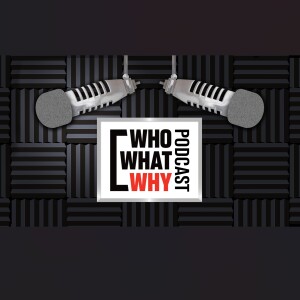
RadioWhoWhatWhy: The Mouth That Roared — How Rush Limbaugh Changed America
 2018-08-07
2018-08-07
From long before the rise of Fox News, talk radio has been the essential medium through which millions and millions of hard-core conservatives comprehend the world.
From its inception, talk radio has been built around codes of tribal identity, grievances, and scorn. Originally tapped as entertainers, talk show hosts soon learned to mobilize public anger in ways that boosted their listenership enormously. Talk radio’s modern era began 30 years ago this month, with the national launch of Rush Limbaugh’s show.
In this week’s WhoWhatWhy podcast, Jeff Schechtman talks with Michael Harrison, founder and longtime editor and publisher of Talkers Magazine, often referred to as “the bible of the talk radio industry.”
Schechtman and Harrison discuss how talk became big business by giving us an unparalleled group of personalities who thrived in an atmosphere — that they helped drive — of personal and political divisiveness. In a way, Limbaugh begat Fox News, MSNBC, the Tea Party, and, finally, Trump. All without ever losing his own audience or identity, which was overwhelmingly conservative. The Economist said last year: “[T]o understand the Republican party, get in a car, turn on the radio and drive.”
With the repeal of the Fairness Doctrine in 1987 — the FCC policy that had required the holders of broadcast licenses to present matters of public importance in a fair and equitable way — all aspects of politics became fair game. And in 1988, a little-known Sacramento, CA, sports host moved into politics.
The way he caught on was dramatic. Love him or hate him, it became clear, as Harrison points out, that Rush was a once-in-a-generation talent.
Harrison and Schechtman chat about the early days of talk radio, and how Rush changed it. About the difference, initially, between Rush’s idea of entertainment and how his audience often took him very seriously. Harrison speculated that, in the early days, Limbaugh was a kind of right-wing Jon Stewart.
He combined everything that had come before in talk radio. He was conservative, he was angry, he was well-informed, and he had humor. In his early years, before he began to take himself too seriously, you never knew if his vitriolic flights of rhetoric were real or shtick.
Starting with just 56 stations in 1988, he was heard on 800+ stations only three years later. In 2008, he signed a $400 million eight-year deal and his success inspired many imitators.
The roll call of clones he spawned includes Sean Hannity, Glenn Beck, Neal Boortz, Dennis Prager, Michael Savage, Hugh Hewitt, Laura Ingraham, and Mark Levin. To say that Limbaugh and his emulators made possible Trump’s election may be hyperbole. Or maybe not.
More Episodes
 2024-10-04
2024-10-04
 2024-08-09
2024-08-09
 2024-07-19
2024-07-19
Create your
podcast in
minutes
- Full-featured podcast site
- Unlimited storage and bandwidth
- Comprehensive podcast stats
- Distribute to Apple Podcasts, Spotify, and more
- Make money with your podcast
It is Free
- Privacy Policy
- Cookie Policy
- Terms of Use
- Consent Preferences
- Copyright © 2015-2024 Podbean.com





